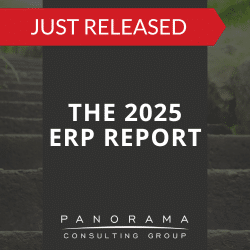Like their counterparts in the private sector, most CIOs and project managers in the government space are concerned with implementing their ERP, CRM, payroll, financial, and other enterprise systems on time and on budget. Some even want to see actual improvements to their public-sector organizations. However, very few expect that they will be defrauded for hundreds of millions of dollars by their system integrators.
Unfortunately, that’s exactly the problem faced by the City of New York. Just last week, officials announced that most of the $600 million that the city paid to its main contractor (TechnoDyne) for its payroll system implementation involved fraud. In what seems to be a complex and long-term web of greed, the main contractor, sub-contractors, and city employees were taking kickbacks in exchange for awarding business.
This problem brings up two questions: 1) Why in the world would any organization pay $600 million for a payroll system, even if it did involve 160,000 end-users, and 2) How did it go undetected for so long? Both questions are worthy of additional discussion beyond this single blog, but there are some lessons to be learned here. Although Panorama was not involved and never has been involved with the City of New York or this project in particular, there are some conclusions we can make:
1. Independent validation and verification can ensure a project finishes on time and on budget. I’m not familiar with the details of NYC’s payroll project, but according to our research and benchmarks in the public sector, I can tell you that $600 million seems like an extremely high and unnecessary budget. With a budget this high, it would have behooved the City to spend a small sliver of their resources on independent validation and verification (IV&V), quality assurance, and oversight. An independent third party with expertise in complex systems implementations is able to identify signs of fraud, misuse of resources, and lack of implementation best practices. When contractors like TechnoDyne get fat, long-term contracts with a government entity – even when fraud is not involved – it can be awfully tempting to get lazy without a third-party to keep the project on track.
2. Outside ERP system experience is crucial to the success of any enterprise software initiative. Deeper and more relevant experience with complex enterprise system implementation could have probably materially reduced the amount of money the City invested in their project. Whether it be a payroll, financial, CRM, HR, ERP, or health insurance exchange system, government ERP projects can be very complex and risky. Only companies with a great deal of expertise in these types of implementations in a number of industry verticals should be trusted with such responsibility. In addition, these types of experts can help identify best practices, highlight opportunities to negotiate more favorable contract terms, and help provide other expert guidance that your average consulting firm would be unable to do.
3. Proven best practices, tools, and consulting methodologies will drive down your implementation costs. While we don’t know much about the City’s project, our assumption is that the organization and its consulting contractors failed to leverage implementation best practices, tools, and methodologies. If it had, it most likely would not have required a $600 million investment on an incomplete initiative. Consulting firms that specialize in ERP implementations — such as Panorama Consulting — bring implementation tools that will accelerate your implementation timeframe and reduce the overall cost of your initiative, while at the same time addressing points one and two.
Most ERP initiatives are not destined to lead to fraud, kickbacks, and/or failure. However, the above tips will smoke out any signs of those tendencies. More commonly, these same tips will also help prevent more moderate challenges and problems, such as budget over-runs, delayed implementations, and poorly implemented systems.
Learn more about how Panorama can help with your ERP systems initiatives by viewing our ERP and IT services.












